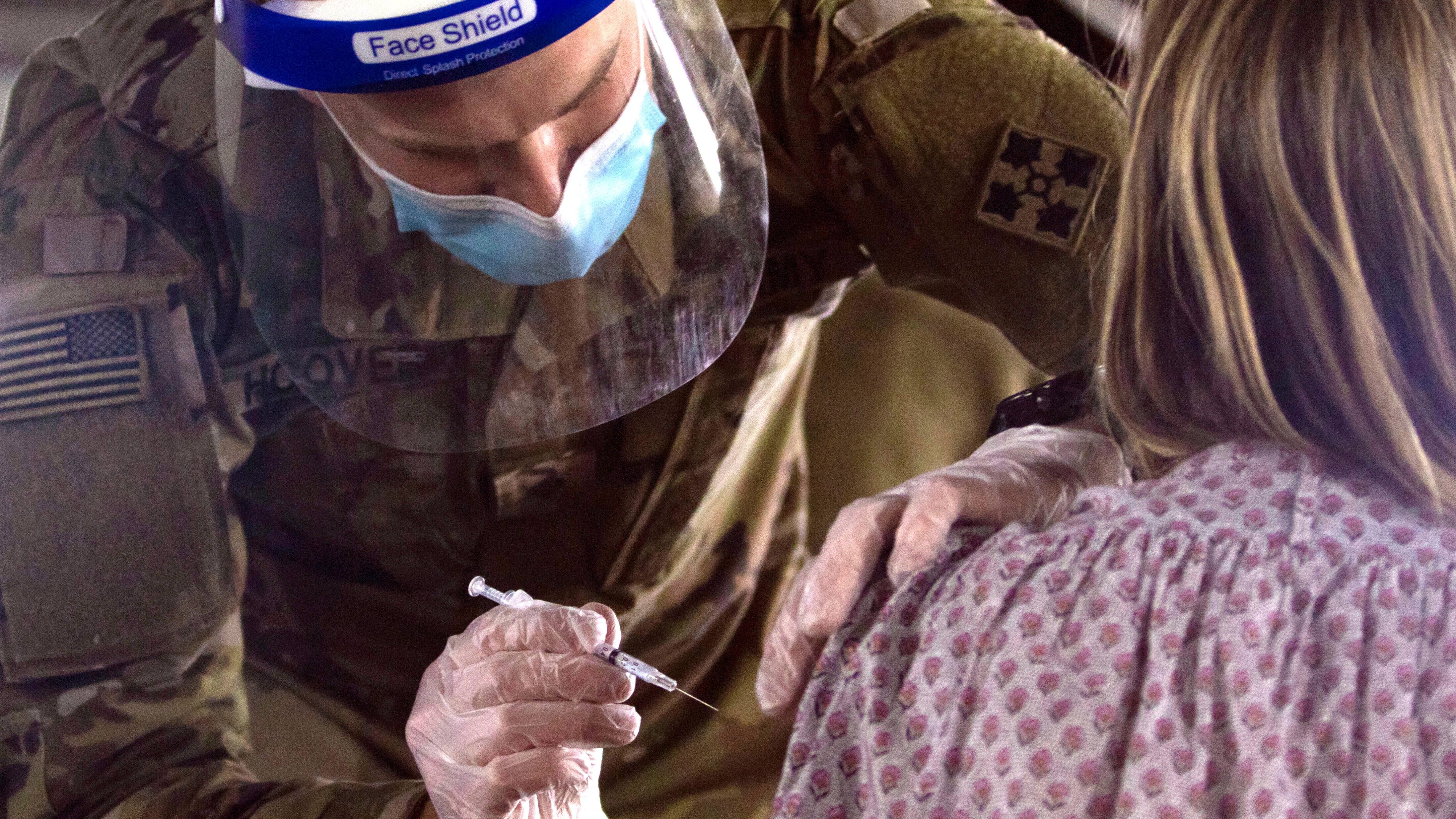Soldiers Seize ‘Unique Chance’ to Serve Community
Soldiers Seize ‘Unique Chance’ to Serve Community

What began as a short-notice deployment for an active-duty task force to stand up and run a community COVID-19 vaccination site turned into an up close and personal mission for soldiers and the people they helped.
With less than a week’s notice, soldiers with the 299th Brigade Engineer Battalion, 1st Stryker Brigade Combat Team, 4th Infantry Division, from Fort Carson, Colorado, deployed Feb. 16 as the first active-duty vaccination support team tapped to help fight the nation’s battle against COVID-19.
The mission was to provide command and control of a large-capacity community vaccination center, the first of its kind in the nation, in a site at California State University. Battalion Command Sgt. Maj. Nathaniel Atkinson said the soldiers, most of them volunteers, were ready to roll, but the planning was tricky because no one had carried out this type of mission before.
“We left in four days, so it was trying to get all the information, get all the facts for something no one has done,” Atkinson said during a June 23 call with reporters organized by the Army. With very little time, he recalled, “there’s nobody I can call, former sergeants major who have done this, to give me some advice on who to take” on the mission or what resources they might need.
It was a state-run, federally supported operation that required active-duty and National Guard troops, state and federal employees and local agencies.
Atkinson and battalion commander Lt. Col. Andrew Olson decided they would ask first for volunteers, and they had plenty, including many from Los Angeles whose family members received their vaccines at the site.
In addition to 80 soldiers from the battalion, medical personnel from the brigade’s other battalions were added to the mission, and the task force was augmented on the ground by nurses, pharmacy technicians and a pharmacist.
As droves of people began to arrive at the site to receive the vaccine, Olson said, “We quickly recognized this as a unique chance to serve the American people directly.”
During the 62 days the Fort Carson soldiers were in Los Angeles, more than 334,000 people were vaccinated. Soldiers were not compelled to be vaccinated, but many were vaccinated in Los Angeles after having been exposed to the process. “When we deployed, we were about 40% vaccinated, and when we returned, we were about 75% vaccinated,” Olson said.
The mission, Olson said, was “from the get go, a bestowal of trust” from the highest levels of government down the chain of command to their battalion. But what they saw in their soldiers on the ground was a pleasant surprise.
“What we saw every day was compassion, we saw the goodness of our soldiers as they went out of their way to serve those who were emotionally distressed or who were mobility impaired,” Olson said. “They went the extra mile to personally serve and connect with and comfort those who were having a hard time or for whatever reason needed extra attention. I was taken aback by that, I loved it, it was a wonderful experience.”
Olson said the soldiers’ impact on the community, including some who said, “I did not know Army people could be so nice,” was “a validation” of how they were able to build trust with East Los Angeles, an area hit hard by the pandemic.
“I think the community there walked away with an impression of the Army that was extremely positive, and it was an honor to be part of that. Soldiers said they loved meeting people, people were thankful and complimentary, it made them feel good,” Olson said. “Even though it was a little bit like [the film] Groundhog Day, it made every day special.”

